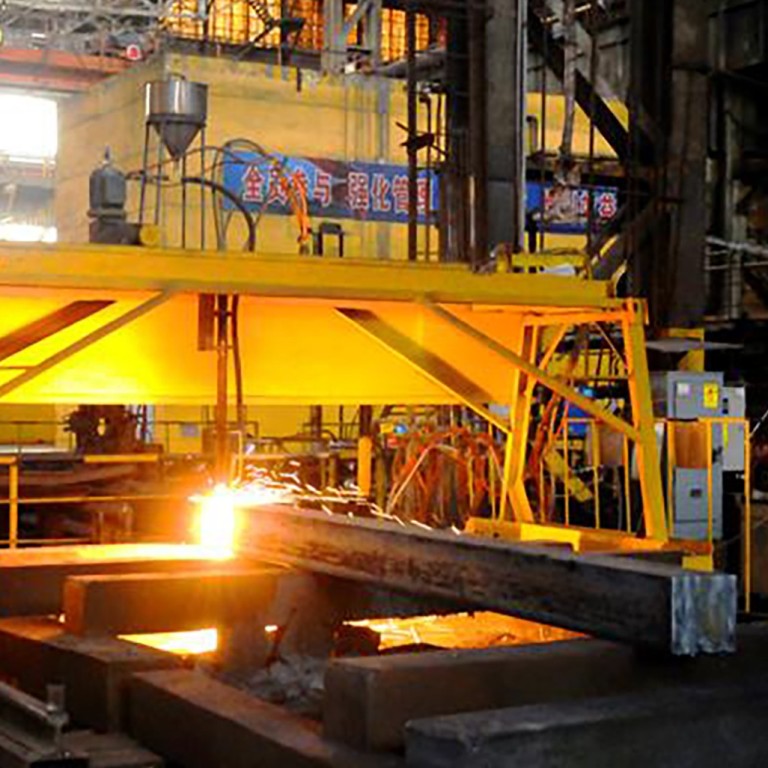
Chinese steelmaker that cooked the books shows struggle to revive rust belt
- Shanghai-listed Fushun Special Steel was found to have fabricated financial numbers including for its inventory, earnings and fixed-asset investments
- Regulator fined the company US$87,200, named and shamed 45 of its executives and slapped individual fines on them too
As officials from China’s northeast report an improved economic performance, one of the region’s biggest state-owned firms has revealed the penalties it received for cooking its books, again throwing a spotlight on the complexity of reviving growth in the country’s rust belt.
Shanghai-listed Fushun Special Steel, a “penny stock” company controlled by Dongbei Special Steel, was found to have fabricated its financial numbers on multiple fronts including its inventory, earnings and fixed-asset investments between 2010 and the first three quarters of 2017.
The company made the disclosure in a statement filed to the Shanghai Stock Exchange, citing an investigation by the China Securities Regulatory Commission (CSRC).
Owned by the Liaoning government, the steelmaker inflated profit by 1.9 billion yuan (US$276 million) during that period by exaggerating inventory levels and reducing production costs, according to the statement that gave details of the CSRC findings.
The regulator condemned the company for its “prolonged illegal behaviour, [using] extremely bad means that involved huge amounts, seriously disrupting market order and causing serious losses for investors”.
Fushun was fined 600,000 yuan (US$87,000), while 45 of its executives – including former chairman Zhao Mingyuan – were named and shamed, and individually fined between 50,000 yuan and 300,000 yuan, the statement said. Zhao and four others were also banned for life from entering China’s capital markets.
The period during which Fushun provided false data overlapped with the four years, between 2011 and 2014, when Liaoning officials were earlier found to have inflated the province’s economic growth numbers.
Fushun’s disclosure last week came after Liaoning posted 6.1 per cent growth in the first quarter of 2019 – a level that officials said showed the worst was over for the province, whose economy is the biggest among the three rust-belt provinces, which include Jilin and Heilongjiang.
Still, Fushun is just one of the region’s problematic state-owned enterprises (SOEs). Their troubles range from fabricating financial numbers to being overly indebted and colluding with local officials, largely fostered by a longer tradition of the state taking a heavy role in enterprises since the northeast was where China’s industrialisation began in the 1950s.
But local protectionism has also been one of the biggest reasons behind the region’s decline, as companies struggled to make the transition under the country’s opening up and reforms.
Creditors ultimately lost 78 per cent of their money through what they called a murky “bankruptcy restructuring” plan dictated by the local government that excluded assets in Fushun Special Steel – which was seen at the time as profitable.
Dongbei Special Steel had chalked up at least 55 billion yuan in debt, far more than its total assets, when it went into bankruptcy and reorganisation in 2017, according to a report in official newspaper Secu rities Times.
Zhao, who also helmed Dongbei Special Steel before he was put under investigation by the Communist Party earlier this year, is among a number of Liaoning officials to fall from grace in recent years. A massive vote-buying scandal between 2011 and 2013 brought down six top officials including former provincial party chief Wang Min and vice-governor Liu Qiang.
Liu was an executive at PetroChina, an arrangement that reflected the murky relationship between politics and SOEs.

